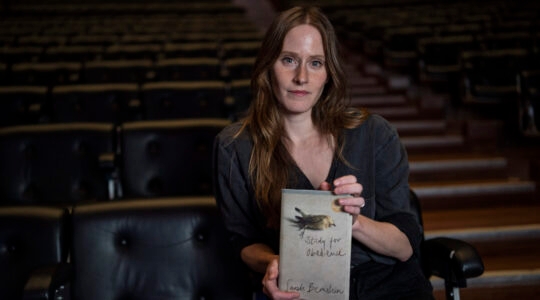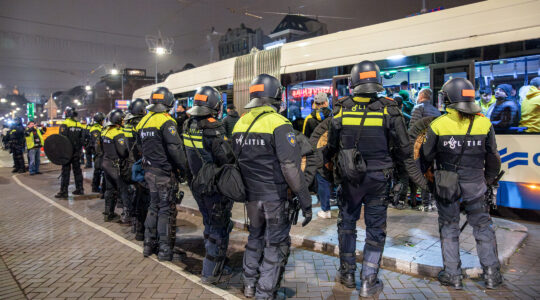BUENOS AIRES, Argentina (JTA) — In response to the 1933 public burning of Jewish books in Berlin, the Latin American branch of the World Jewish Congress uploaded digital versions of 190 Jewish books published in Spanish.
The free ebooks are from the Jewish People’s Library, which was edited by the WJC between 1960 and 1980, and are no longer available on the commercial market.
“Some 83 years after the disastrous day where around 20,000 books were burnt in public, we decided to deliver a counter-message: sharing books that are difficult to access,” said Claudio Epelman, executive director of the Latin American Jewish Congress.
Books and writings deemed “un-German” were burned at the Opernplatz in Berlin on May 10, 1933 by the Nazi Student Federation as part of the “action against anti-German spirit.” Book burnings also were held on the same day in 21 German cities, according to the U.S. Holocaust Memorial and Museum in Washington, D.C.
The Jewish People’s Library, a series of paperbacks published by the South American Executive of the World Jewish Congress, brings together an important collection of biographical essays on personalities in Jewish history and culture, and a collection of thematic studies titled “Facts of Jewish History.”
Books on anti-Semitism include topics such as the Warsaw Ghetto, the Italian Ghetto, the Kischinev pogrom, the Inquisition in Spain and the Tragic Week in Argentina. Books on Jewish personalities include and Theodor Herzl, Franz Kafka, Albert Einstein, Shai Agnon, I.L. Peretz and Martin Buber. Listings include the headings of Israel, Jewish communities, Middle East, Zionism, Holocaust, Jewish history, History, Second World War and Jewish tradition.
“This series of books, beyond its rich content, also has symbolic value for the Jewish communities in Latin America,” Epelman said. “Our goal is to ensure that cultural goods are affordable for everyone. Only in this way can we contribute to a better understanding of our society and aspire to better living.”
Meanwhile, on Saturday, the Argentine Zionist Organization unveiled a Spanish translation of “Altneuland,“ a novel written by Herzl, during the 42nd Buenos Aires Book Fair, where Israel’s booth won a prize for creativity.

Help ensure Jewish news remains accessible to all. Your donation to the Jewish Telegraphic Agency powers the trusted journalism that has connected Jewish communities worldwide for more than 100 years. With your help, JTA can continue to deliver vital news and insights. Donate today.





